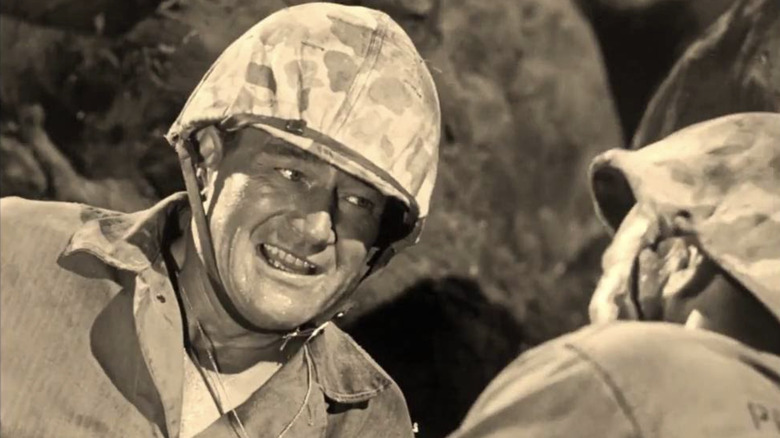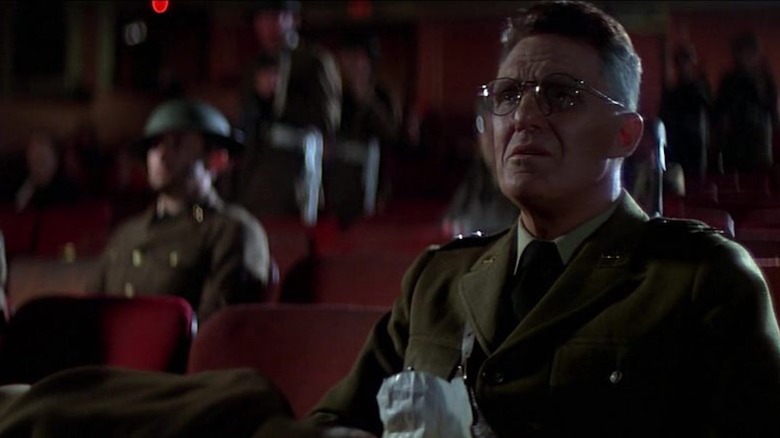How John Wayne Tried To Stop Steven Spielberg From Directing 1941
With the back-to-back blockbuster combo of "Jaws" and "Close Encounters of the Third Kind," Steven Spielberg had firmly established himself as a sui generis Hollywood visionary when, in 1978, he chose to make "1941." Most people consider this a near-disaster of a decision. The anarchic World War II comedy, set in panicked Southern California in the immediate wake of the assault on Pearl Harbor, was a 180-degree turn from the spirited adventure and childlike yearning of his previous two films. It was silly, vulgar and more than a little mean. And, most audaciously, it was making light of the country's understandably crazed reaction to an attack that killed thousands of U.S. military personnel.
Spielberg's co-conspirators in this juvenile affront to one of the worst days in 20th century American history were screenwriters John Milius, Robert Zemeckis and Bob Gale — and, really, all you have to do is watch "Used Cars" to know that those last two were responsible for the film's most tasteless elements. But this is Spielberg's baby. It's loaded with military fetishism (the planes — both real and miniature – are lovingly photographed), and hits its delirious highpoint with a USO musical set piece that turns into a drunken brawl. Spielberg is on fire behind the camera.
As for his judgment in making the movie, it appeared on paper to be a preordained smash. He'd secured the services of "Saturday Night Live" superstars John Belushi and Dan Aykroyd, and had free rein to stage dazzling aerial battles over some of the most realistic miniatures ever constructed for a Hollywood movie. And being Spielberg, he could reach back into the industry's golden age and cast some of its most beloved actors.
He did pretty well on the casting front, but missed big-time when he offered a part to John Wayne.
Wayne told Spielberg: 'Don't joke about World War II'
For the role of Major General Joseph W. Stilwell, the U.S. Army leader tasked with calming the "war nerves" of a frazzled Southern California, Spielberg's first choice was The Duke. Given that Stilwell was a real-life WWII hero, he thought Wayne would want in on the fun. Spielberg miscalculated. As the filmmaker told Entertainment Weekly in 2011:
"He was really curious, and so I sent him the script. He called me the next day and said he felt it was a very un-American movie, and I shouldn't waste my time making it. He said, 'You know, that was an important war, and you're making fun of a war that cost thousands of lives at Pearl Harbor. Don't joke about World War II.'"
Wayne harbored plenty of guilt over not serving in the conflict (as fellow stars like James Stewart and Henry Fonda had done), so he was likely leery of playing a cartoonish version of Stilwell (who tears up during a screening of "Dumbo"). Even if Wayne had said yes, he was a year away from dying of cancer and probably not up to the task.
Ultimately, Robert Stack did a fine job as Stilwell, and, if nothing else, The Duke avoided going out on a film widely (and wrongly) regarded as a stinker. But he'll forever have to answer for the abomination that is "The Green Berets."

